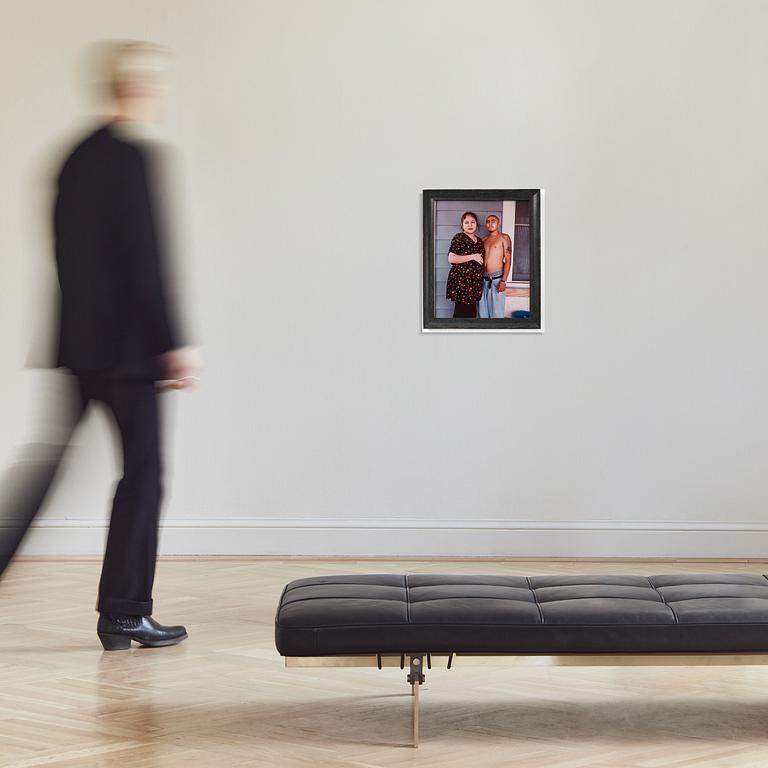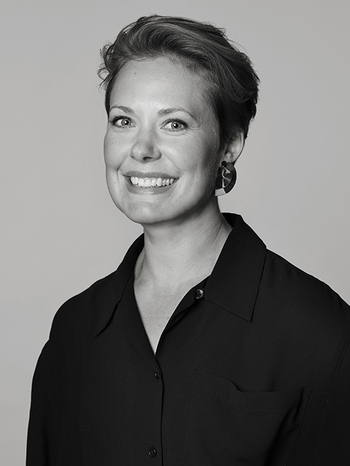Esko Männikkö
"Christina and José, San Antonia, 1996"
Signed Esko Männikkö and numbered 2/20 verso. C-print, 64 x 53.5 cm including the artist's frame.
Alkuperä - Provenienssi
Galerie Nordenhake, Stockholm.
Muut tiedot
Finnish photographer Esko Männikkö came to international prominence in the mid-1990s with his series of photos showing bachelors in the northern parts of Finland. The images can be described with words like intimacy, dignity and humor, despite the apparent hardship experienced in these places. His later pictures, from Mexico and elsewhere, also depict environments and cultures on the margins of society.
In the 'Mexas' series, Männikkö portrays the Mexican population around the cities of San Antonio and Batesville, Texas. Although the climate and the size of the population and communities differ between northern Finland and Texas, there are also many similarities between the people Männikkö has photographed.
In many ways, Männikkö's work shows a strong affinity with painting. His subjects include hunting scenes, still lifes and portraits, reminiscent of the skillful Dutch artists of the 17th century. In their magnificent Vanitas still lifes, withered flowers, insects and rotting fruit reminded us of the transience of life. Instead of the lavish flower arrangements and silver goblets of the time, Esko Männikö's still life depicts an everyday kitchen table three hundred years later, the remains of a meal where the ashtray and its cigarette butts have been replaced by the grinning skulls of the Dutch.
Männikkö's documentary images depict life in the Finnish highlands, an environment where fishing, hunting and reindeer herding are a natural part of life. The still lifes of Dutch painters were also often linked to fishing and hunting. In fact, the fish is one of the oldest pictorial symbols, an early Christian symbol but also an important element in Finnish mythology. The connection to painting is further emphasized by Männikkö's choice of frames. He chooses the frames for all his photographs himself. In the earlier series, he used worn and broken frames that he bought at a flea market or found, while in the later suites he has created them himself, in darker tones and with a stronger character.
Even in the interiors, the choice of subject, section and composition are strongly reminiscent of classical genre painting. There are several similarities with, for example, Anders Zorn's idealized paintings of cottage interiors in Dalarna. Just as in turn-of-the-century genre painting, Männikkö attempts to depict the everyday concerns of the common people. However, Zorn's voluptuous Dalecarlians have been replaced by men in work clothes.
Esko Männikkö is represented in the collections of the Fondation Cartier, Paris, The Museum of Contemporary Art in Helsinki, Moderna Museet and the Museum of Contemporary Art, Los Angeles.
He has had several exhibitions at Galerie Nordenhake in Stockholm and Berlin and at Yancey Richardson in New York, among others. In 2008 he was awarded the prestigious Deutsche Börse Photography Prize.




































